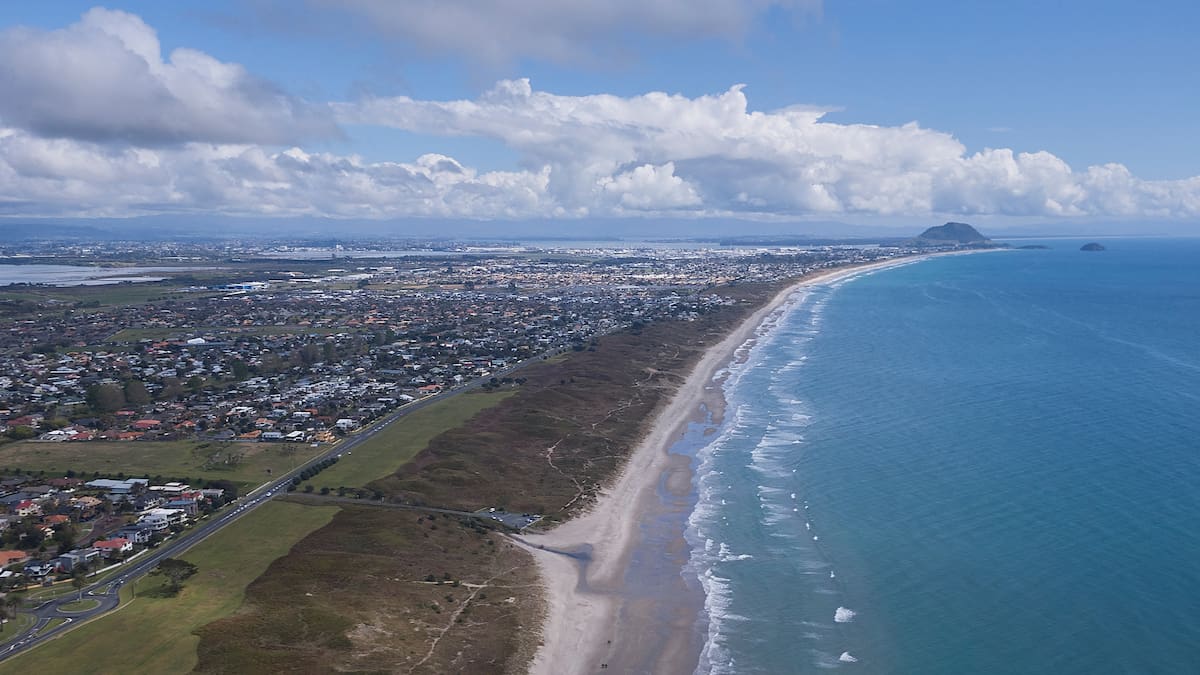It also said the person was “living in a highly supportive home environment and being supervised 24/7″.
The parent, who asked not to be named, said there was “huge backlash” against the offender being freed into the middle of a family-friendly area, within close walking distance of schools and childcare centres.
Another Pāpāmoa mother, who also asked not to be named, said her “biggest concerns” were the “vagueness” of exact details of the offending and how Corrections had arrived at its decision.
She was also upset at not being informed directly.
“Releasing him smack bang in the middle of a high-density area, surrounded by childcare centres and schools, doesn’t make any sense. I’m disgusted.
“There are too many unanswered questions, including why Corrections did not inform us directly and allow us to have our say.”
The decision was causing her “a lot of anxiety”.
“As a parent, if you don’t have all the facts, you’re going to go to the darkest place when it comes to your child’s safety.
“I appreciate that the released offender has certain legal rights, but what about our rights not to be constantly worried about our precious babies?”
She said she no longer took her child to a nearby park, and the childcare centre her child attended had stopped the children’s walking excursions around their neighbourhood.
Te Akau ki Papamoa School. Photo / NZME
Te Akau ki Pāpāmoa principal Dorothea Collier said the management and monitoring of individuals in the community was the responsibility of Corrections and the police.
“… As a school, our priority remains the safety and wellbeing of our students.
“We continue to follow our established child safety and wellbeing policies and work closely with the Ministry of Education to make sure we are supported and informed.”
Pāpāmoa College principal Iva Ropati said he found out about the released offender from other principals, and he would have appreciated being contacted personally by Corrections.
He had “serious concerns” about the offender being placed in an area heavily populated with schools and young people.
Pāpāmoa College principal Iva Ropati. Photo / Alex Cairns
“We appreciate the need for offenders to be reintegrated into the community. But common sense would suggest they be placed as far away from schools and other places where young people assemble.”
The risk of not having all the facts resulted in different messages and “unnecessary concern or panic” within the school community, which was unfortunate, he said.
“As a community, and on balance, overcommunicating the matter would ensure a much better plan to ensure the safety of all of the children in the area.”
BestStart childcare deputy chief executive Fiona Hughes said parents were notified once the centre was made aware that the offender was released into the community.
“In our early childhood setting, children are always accompanied by a parent or caregiver to and from the centre … and supervised by their teaching teams at all times and in all areas of the centre.
“These safeguards give us confidence that our children remain safe and well cared for while in our centre.”
BestStart childcare provider’s deputy chief executive, Fiona Hughes.
Tauranga Community Corrections general manager Brent Reilly said public safety was an “absolute priority” and the offender was being monitored and managed “extremely closely” by experienced staff.
The offender was released subject to 25 standard and special conditions, including electronic monitoring, exclusion zones, not contacting victims or their family members, and “to take part in treatment and rehabilitation”.
“He has been compliant with all his conditions.”
A copy of the Department of Corrections letter left at Pāpāmoa properties.
Reilly said Corrections looked at a range of factors when deciding on the suitability of an offender’s address and consulted with other agencies, including the police.
These included the location of victims and support services, other occupants at the property, and having a clear GPS signal “at all times”.
“Our team notified eight schools and early childhood centres in the area, and visited 36 residences across the Pāpāmoa area. We also spoke to 22 residents and left letters at 14 properties.”
He said the letter notified residents that a person with convictions for sexual offending against children would be residing in their area.
Corrections “worked hard” to balance communities’ concerns with its obligation to ensure it safely managed people in the community.
“We are committed to doing everything we can to ensure each person is safely reintegrated into the community and has a safe, suitable accommodation.”
Sandra Conchie is a senior journalist at the Bay of Plenty Times and Rotorua Daily Post who has been a journalist for 25 years. She mainly covers police, court and other justice stories, as well as general news. She has been a Canon Media Awards regional/community reporter of the year.

